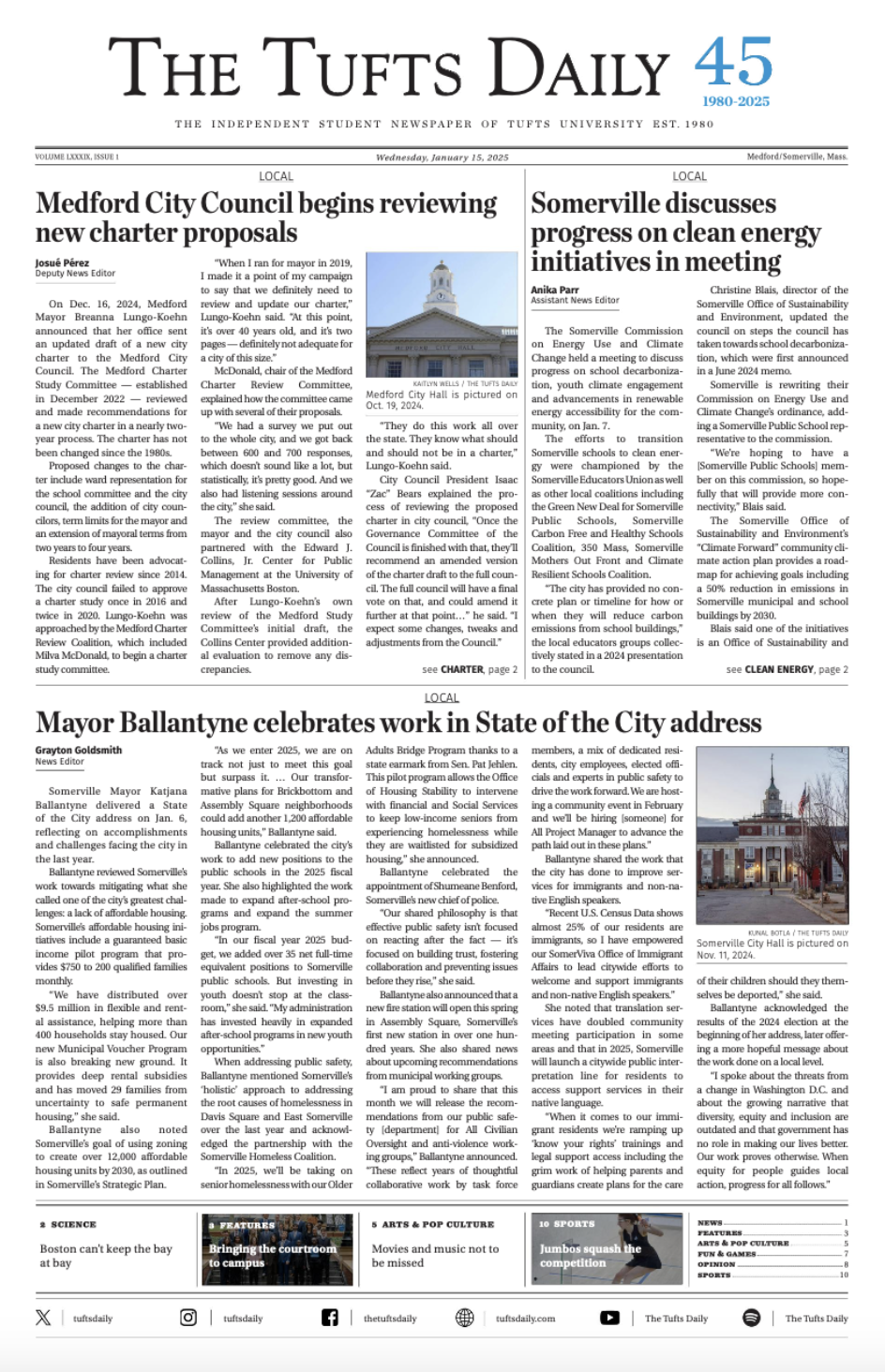When Pinkberry opened its first location in West Hollywood in 2005, owners Shelly Hwang and Young Lee reaped the benefits of nearly instant success. The Los Angeles locale meant a deadly combination of health−conscious consumers and year−round warm weather to complement its frozen yogurt products.
Pinkberry's small location, coupled with its massive cult following, led the Los Angeles Times to dub their yogurt "the taste that launched 1,000 parking tickets." After operating exclusively in California during its first year, however, the Pinkberry franchise soon set its sights on national expansion, beginning with New York and eventually making its way to Massachusetts.
On Nov. 5, the Pinkberry franchise had finally arrived in Boston, albeit a week past the originally intended opening date. Tightly wedged between the cramped brick storefronts of the popular Newbury Street shopping location, Pinkberry was a subtle but highly anticipated addition.
The aesthetic of the yogurt franchise is simplistic, upbeat and extremely modern, to the point of bordering on austere. Sticking closely to their original design, the store features a faux pebble floor, green polka−dotted counters, orange walls and white plastic furniture. The decorating, although certainly not warm, is relaxing in its streamlined cleanliness.
The menu follows a similar style. Contrasting sharply with Boston's own J.P. Licks, which offers a wide variety of flavors, Pinkberry offers only five, making the decision quick and painless. This is a considerable expansion from the first Pinkberry, which offered only two flavors: original and green tea. Abandoning green tea, the Boston location now sells the original along with mango, pomegranate, coconut and chocolate.
Of the new flavors, the first three serve as fresh, fruity complements to the tangy nature of Pinkberry's signature taste; the chocolate falls unfortunately flat. The tanginess that works so well with their other flavors translates into what can only be described as sour chocolate — an experience most would be wise to avoid.
Patrons who are looking for more of a dessert fix would be better off turning toward the wide range of toppings, which include cheesecake and brownie bites, as well as a few guilty cereal favorites like Cap'n Crunch.
Really, though, the best way to enjoy Pinkberry is to avoid looking at it as a dessert altogether. In reality, it has dramatically changed previous conceptions of frozen yogurt — as a less tasty, healthier alternative to ice cream. In the past, frozen yogurt attempted, and usually failed, to imitate the creamy flavor of its fatty counterpart.
Pinkberry, on the other hand, does not try to taste like ice cream. In fact, the tangy quality is often better paired with fresh fruit, sliced daily and never frozen, than with toppings like Oreo cookies and whipped cream. For the more adventurous, mochi (a Japanese pounded sticky rice) is a less traditional topping that goes well with the fruitier flavors.
At $3.95 for a small with toppings, Pinkberry yogurt is only slightly more expensive than a regular Starbucks latte, making it well within a college student's budget. And although it isn't quite as cheap as your standard ice cream cone, it's hard to beat the approximately 150 calories in a small original. Other health benefits advertised include live cultures, high calcium content and non−fat milk and yogurt.
For those interested in something other than a cup of yogurt, Pinkberry also offers fruit bowls, yogurt parfaits, smoothies and cone swirls. None of these items strays very far from the original concept though — Pinkberry is the wrong place to visit if you're looking for variety. In fact, the only rotating feature in the franchise's menu is their seasonal flavor, which was pumpkin during its opening in November, but has since switched to blood orange.
Nicknamed "Crackberry" by California fans, the franchise has clearly gained brand loyalty on the West Coast. Only time will tell how the new Pinkberry will fare in Boston, a city less obsessed with fashionable trends than Los Angeles or New York City. The franchise is clearly planning on becoming a hit: another location will soon be opening in Harvard Square.
The success of similar local chain BerryLine, which has locations in Harvard and Porter Squares and in Fenway, certainly shows that there is a market for this type of frozen treat in the Boston area, despite being a setting where "frozen" is hardly a marketable advantage. The formula is not a clear recipe for success, though, as similar businesses, such as Spün in Powderhouse Circle, have opened and quickly closed.
Either way, Pinkberry is certainly worth a visit, even if it is hard to say at this point whether their frozen yogurt will steal the hearts of local college kids around Boston. The yogurt is good, and the price is hard to beat.





